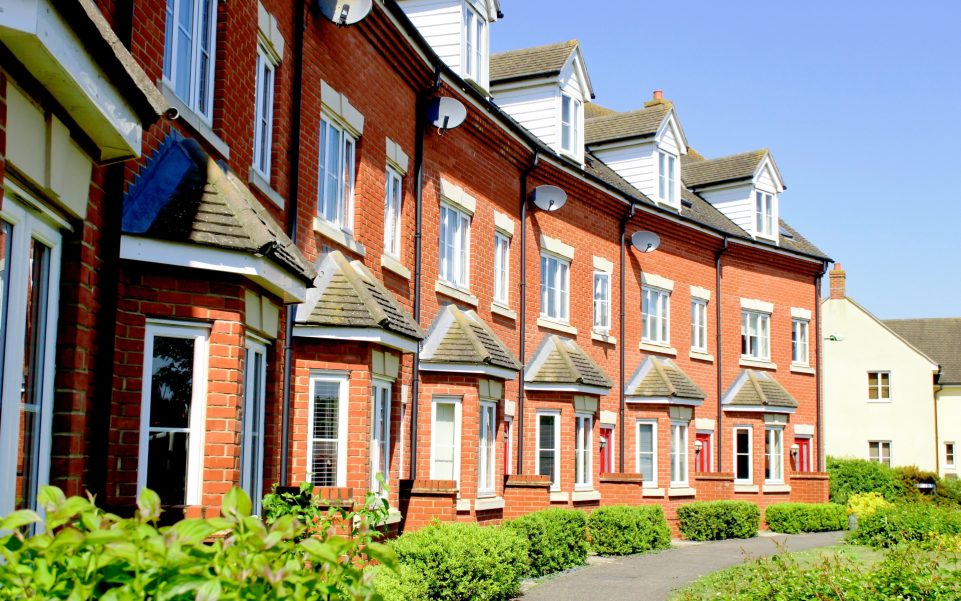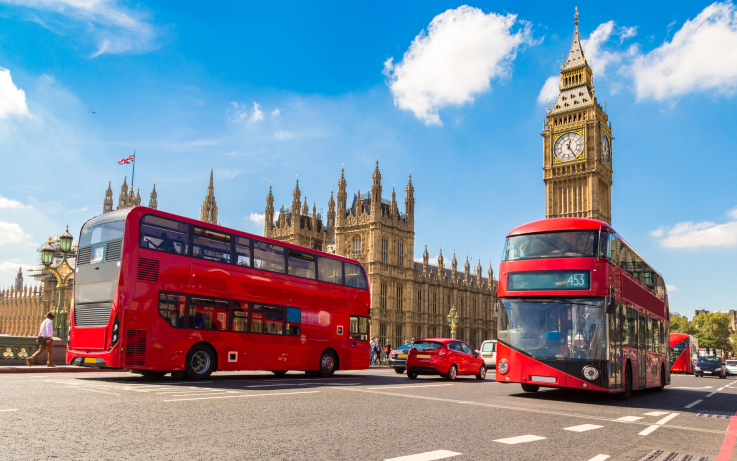Tips for choosing a property in the UK

A well-planned move, including a move from abroad, is not an easy task. There are many factors to consider when choosing a property. First of all, it is the distance from the place of work, kindergarten or school, and much more. Difficulties can arise at any of the stages, so you should familiarise yourself with the features of the new place of residence in advance. Here are some tips to make it easier to deal with the housing issue when moving to the UK.
Optimal property search time
Moving to England is first and foremost about finding the right accommodation – a house or flat. There are a lot of things to consider in order to make a successful choice, but you can always find a suitable option on the market. It is worth remembering that landlords start making offers about 6 weeks before the property is vacated by the previous tenants. Therefore, you should plan the selection, negotiations and contract conclusion in advance: you should start searching at least 1.5-2 months before the expected move-in date. Then the move will be comfortable and hassle-free.
Professional real estate services for rentals
Within the UK there is a special organisation, ARLA, to which all residential letting agents must belong. ARLA members have their own set of rules that must be adhered to. They ensure that all transactions are conducted fairly and to a high level of service. Therefore, before entering into a contract with an estate agent, it is worth checking that they are licensed by the organisation.
Payment for rented property
The length of time you plan to stay in England should be taken into account. The amount of rent and the stages of payment depend directly on the length of the tenancy agreement. The point of determination is the six-month period: if the tenancy is for up to 6 months, it is a short-term tenancy, and if it is for more than six months, it is a long-term tenancy.
In a short-term agreement, the amount of money paid to the landlord is defined as payment for all months of the tenancy, including the cost of utilities, gardening and other mandatory services.
A long-term lease is broken down into several instalments. Initially, the landlord expects to pay monthly rent directly for the property area itself. In addition – if there are mandatory services for the maintenance and servicing of the house and common property. Such payments should be discussed separately, determining the amount of payment and frequency of payment. At the same time, the amount to be paid for utilities is usually calculated on the basis of consumption, and the tenant pays for them in another instalment on top of the previously announced rent.
Place of residence
Moving to England for permanent residence is a change of routine, a change of environment. It is very important to carefully consider the choice of future place of residence. It depends both on the distance to the future work office and on social and cultural needs. Attention should be paid to:
- convenient transport links to future work;
- proximity to grocery and other shops;
- remoteness from cultural centres, diversity of their programmes;
- take into account the availability of medical aid stations;
- If moving to England with children, it is important to have a school or nursery within walking distance.
Other needs are also possible, for example, lovers of an active lifestyle should look at options near parks, stadiums or choose a fitness club with a loyal pricing policy.
It is important to set your priorities in advance and choose the property with the most convenient location.
Attachment to health centres, schools and other organisations
Visits to the general practitioner and dentist are regular events, but in order to carry them out, it is important to be attached to a particular polyclinic. It is better to study in advance the available medical companies, reviews about them, prices for the most popular services and choose the institution that will be the best in terms of value for money. You should contact them before you move in, so that the administrator can explain in detail how exactly you can register.
It is also necessary to apply to kindergartens and schools in advance. Often the number of places in the most prestigious institutions is limited, enrolment is carried out long before the expected date of the first visit, and admission itself requires an interview. There is no single list of requirements, each educational institution has the right to independently determine the procedure for admission. Therefore, you should consult them as soon as you start planning your move.
District schools also have their own regulations and there are not always enough places available for transfer. Calling in advance and clarifying all the nuances will save those moving from unnecessary anxiety and fuss after the move.
Transport accessibility
An important aspect of life in any city is the convenience of travelling by transport. It is much more pleasant to get to work quickly, with a minimum number of transfers, rather than travelling from one end of the city to the other on 2-3 types of transport. This criterion should be taken into account when choosing an area of residence, and it is also worthwhile to immediately calculate the cost of travel. You may want to buy a house in the country and a car, or look into carsharing services.
Availability of furniture in the dwelling
Comfortable furniture is important for everyone to live comfortably. But moving to England for permanent residence may not be so relaxing if you do not specify in advance whether the future property is furnished or not. More often have furniture studios and 1-2 room flats, and large objects are rented without a minimum set of furniture. Then there are two ways out:
- Rent a set of furniture, then the obvious advantages will be the ability to choose the right option for the given layout and the chance to completely change the furnishings at the next move;
- bring the furniture with you, thus avoiding another regular payment in the form of a rental amount for the furniture.
Both options have certain costs, the amount of which can only be estimated by calculating all the sums in advance. And it will depend on each individual case which option is financially more favourable.
Utility and tax payments
The responsibility for utility and tax payments when renting a flat falls on the tenants. This is stipulated in the contract and the order in which the payments will be made is discussed.
Utility bills include: gas, electricity, water.
The market of utility suppliers is quite large. If you understand roughly the amount of resources needed in advance, you can calculate which of the packages offered will be the most favourable and conclude an appropriate contract with the supplier. Payments are usually made by monthly or quarterly transfers directly to the account of the service company.
The second compulsory payment will be the council tax. This is levied in favour of the local government and is used to pay for the police and other municipal services, as well as for the maintenance of the neighbourhood and public areas. The terms of this tax should be negotiated with the landlord, but if a long-term lease is signed, the tenant is usually obliged to pay a set amount to the city every month.
The UK residential property market is rich in options. Every tenant and buyer can find the property of their dreams – the key is to be clear about the most important criteria. Professional estate agents can help you find the best property for you, as they are able to find the most suitable options remotely and negotiate the right contract. Contacting a specialist will help you save your nerves and capital from mistakes, as well as save time.
FAQ about choosing real estate in the UK
Can a foreigner buy rather than rent a property to live in the UK?
A citizen of any country may enter into a contract for the purchase and sale of residential property. This can be either a purchase for personal use or for renting to third parties. Legally, there are no restrictions.
Which property should I choose - new-build or secondary housing?
The main differences between new-build and secondary housing will be:
- 50-year warranty on communications;
- higher energy efficiency and noise insulation;
- improved engineering solutions and convenient layout of both the flat itself and the neighbourhoods.
However, living in a prestigious neighbourhood with centuries of history is a special pleasure. The views from the window of the old buildings and the streets where the British aristocracy once walked in the same way. It has a relaxed lifestyle that emphasises the importance of the moment in life.
Is it possible to move to the UK with a pet?
Most people keep a cat, dog or rodent at home, and less often more exotic animals. There is no prohibition on bringing a pet with you when you move to England. It is important to calculate the need for a pet in advance and prepare properly.
1. There are a number of requirements for the pet itself. He must:
- have all relevant vaccinations, including rabies vaccinations, in some cases an additional rabies antibody test is required;
- to be chipped;
- have an official veterinary passport;
- get regular parasite treatments.
2. It is important to make it clear to potential landlords at the outset that you plan to live with your pet. Some landlords will increase the cost of housing and there may be a higher tax liability. However, this step guarantees a quiet life and full enjoyment of all the amenities designed for pets.







